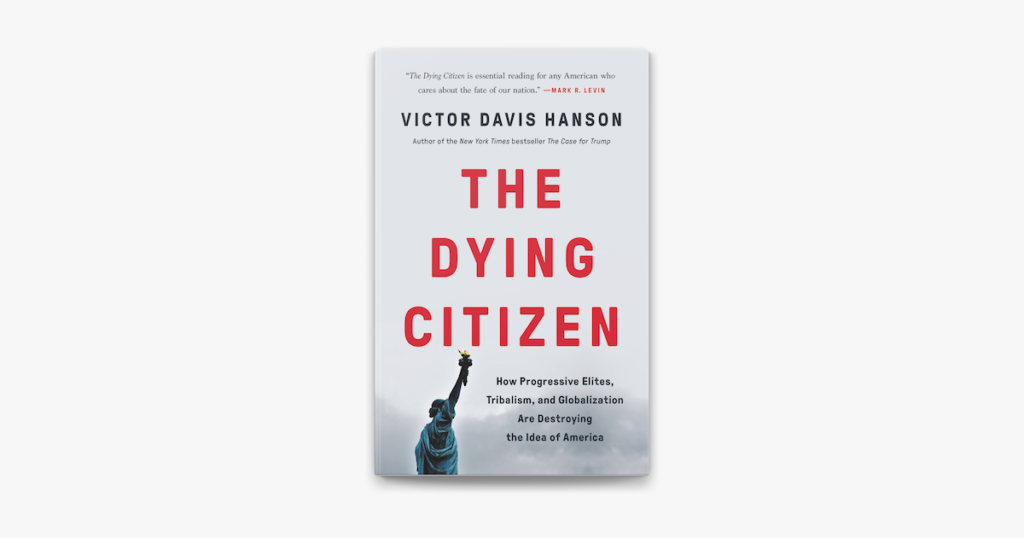
Conservative historian Hanson, a senior fellow at the Hoover Institution, faults what he sees as a diminished respect for American citizenship. What does it mean to be a “citizen”? In a deeply contextualized call to arms, Hanson moves from the ancient Greeks and Romans through the Federalists and Enlightenment philosophers to show how answers to the question have evolved and why he believes cherished ideals about American citizenship are under assault by progressives. As he sees it, “citizens must be economically autonomous.” Unless a sturdy middle class can achieve “material security,” a society divides into “masters and peasants.”
A wide-ranging perspective on citizenship undercut by unedifying assaults on Trump’s critics.” — Kirkus Reviews
Just a couple of quotes.
[T]he mostly elite and formal efforts to change the Constitution—whether by systematically nullifying federal laws, using the courts and the bureaucracy to circumvent the will of Congress, or ignoring or replacing parts of the Constitution itself—share the same ideological geneses that have led to the ad hoc diminution of the middle class, the conflation of citizenship with residency, and the multicultural tribalism discussed previously. The common theme once more is an effort to erode traditions and laws in order to mandate equity [equality of result] and to empower an alliance of the elite and the poor at the expense of the power and influence of the middle class.
Certain canons of globalism are mostly at odds with traditional American ideas of constitutional citizenship. In the globalist creed, democratic socialism is preferable to free market capitalism under the aegis of constitutional republics. The wisdom of the elite managerial class is far superior to the common sense of the public. Those whose jobs are outsourced and shipped abroad are themselves mostly deemed wanting, given their naïveté in assuming that building a television set in Dayton or farming one hundred acres in Tulare is as valuable as designing an app in Menlo Park or managing a hedge fund in Manhattan. To paraphrase again the earlier referenced quote of former treasury secretary and Harvard president Larry Summers, if the new meritocracy fueled inequality, this was because people were being treated as they deserved.

Riddle Me This!
So I think it’s very important — as you have heard from so many incredible leaders for us at every moment in time and certainly this one — to see the moment in time in which we exist and are present, and to be able to contextualize it, to understand where we exist in the history and in the moment as it relates not only to the past but the future. — Vice President Kamala Harris